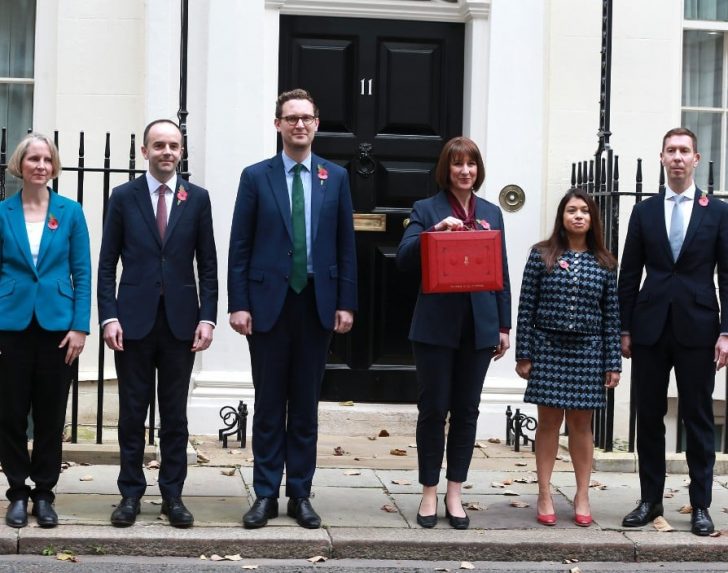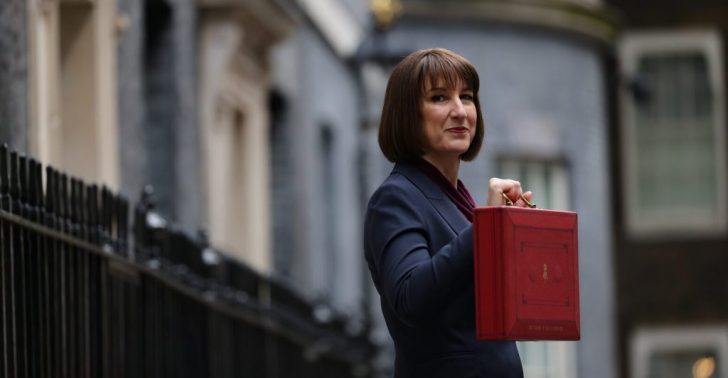
What Does Budget 2024 Mean for UK Business Owners?

In the much-anticipated Autumn Budget of 2024, UK Prime Minister Sir Keir Starmer rolled out some big changes affecting both individuals and businesses. Announced on October 31, this year’s budget promises significant shifts aimed at supporting workers, enhancing businesses, and securing social benefits.
With adjustments to the National Minimum Wage, tax thresholds, business rates, pensions, and NHS funding, there is plenty to unpack.
National Minimum Wage Boost By 6.7%
The Autumn Budget delivered a major win for workers with an increase in the National Minimum Wage. For employees over 21, the minimum wage will rise by 6.7% to £12.21 starting in April 2025. For a full-time worker, this increase could mean up to an additional £1,400 in annual income.

Mine’s / Younger workers – aged 18 to 20 – are set to benefit from the Autumn Budget with a substantial 16% wage boost.
However, for business owners, particularly small enterprises, this change might bring challenges. Higher wages mean an increase in payroll expenses, which could impact profitability and, for some, the ability to expand or hire new staff. While the wage hike aims to improve the quality of life for workers, businesses must prepare for the potential financial strain that could come with this shift.
Income Tax and National Insurance Freeze Ends in 2028
The Autumn Budget 2024 has also made waves by signaling an end to the freeze on income tax and National Insurance thresholds. Initially set in 2021, this freeze had previously capped the income level at which people start paying higher tax rates. Chancellor Rachel Reeves explained that extending these thresholds would continue to eat into the income of working people.
From 2028, the government will adjust these thresholds based on inflation, which will allow salaries to grow without as quickly pushing workers into higher tax brackets. For many, this is a welcome change that could ease financial pressure over time.
Thus, with more income shielded from higher tax rates, families and individuals can expect more money in their pockets, providing a welcome relief after years of stagnant thresholds.
Business Rates Relief for High Street Businesses
In a bid to support struggling high streets, the Autumn Budget includes a 40% relief on business rates for businesses in the retail, hospitality, and leisure sectors. This tax relief will apply in the fiscal year 2025–2026 and aims to reduce the financial burden for these vital sectors.
With online shopping on the rise and economic challenges straining small businesses, this measure offers a much-needed lifeline to keep doors open and revive local economies.

Marca / Budget 2024 includes a 40% relief on business rates for businesses in the retail, hospitality, and leisure sectors.
For business owners in these sectors, this relief could translate into significant savings, allowing them to reinvest in their businesses or tackle other costs. This initiative is a clear attempt by the government to bolster the high streets, retaining the vibrancy and convenience of local shopping experiences.
Be it a small café, a neighborhood bookstore, or a local cinema, this budget measure encourages businesses to continue serving their communities.
State Pension Increase by £470 for Greater Financial Security
One of the key announcements in the Autumn Budget is an increase in the state pension by up to £470. Set to take effect in 2025–2026, this rise aligns with the Triple Lock agreement, ensuring that pensions grow by the highest rate among 2.5%, inflation, or wage increases. For retired workers, this move brings additional financial stability, especially amid rising living costs and an uncertain economic future.
This pension boost reflects the government’s commitment to supporting older citizens, helping them maintain a reasonable standard of living. By tying the pension increase to the Triple Lock, the government is sending a message of reliability and support for pensioners, a demographic that has faced growing financial pressures in recent years.
Although this increase is seemingly modest, it can help with everyday expenses, from groceries to utilities, making a meaningful difference in retirees’ lives.
More in Financial Planning
-
`
How Interactive Matter Maps Improve Legal Research and Planning
Interactive matter maps have transformed legal research and planning by simplifying how law firms manage complex matters. These tools help legal...
November 1, 2024 -
`
The Role of Global Mobility in Business Planning for 2025
In an era where the competition for top talent is fierce, the significance of global mobility in business planning cannot be...
November 1, 2024 -
`
Will AI Legal Advice Empower or Exclude Those in Need of Justice?
The rapid advancement of technology has introduced AI legal advice into the legal profession, creating both excitement and concern. Law firms,...
October 25, 2024 -
`
Trump vs. Harris – Who Does Hollywood Support?
As the race for the White House heats up, celebrity endorsements have become an influential force in shaping public opinion during...
October 22, 2024 -
`
How to Understand Your Energy Bill and Prevent Common Billing Errors
Understanding your energy bill is essential for managing household expenses and catching potential errors. Your energy bill offers a breakdown of...
October 18, 2024 -
`
Is Shawn Mendes’ Relationship With Camila Cabello Finally Clarified?
Recently, Shawn Mendes shared insights into his connection with Camila Cabello during an interview with Jay Shetty. Their relationship, which has...
October 15, 2024 -
`
China Stimulus Fuels Market Surge, But Can It Save the Ailing Economy?
The recent China stimulus measures have sparked renewed optimism in the markets, but doubts remain about whether these efforts will be...
October 10, 2024 -
`
Top 12 Little-Known Savings Tips for Cutting Expenses Fast
Are you looking for the best ways to save money? Saving money often feels like a daunting task, but it doesn’t...
October 10, 2024 -
`
Is Legal Advice from ChatGPT Trustworthy?
Legal advice from ChatGPT may seem like a convenient and cost-effective solution for those facing legal challenges. AI tools like ChatGPT...
October 5, 2024















You must be logged in to post a comment Login